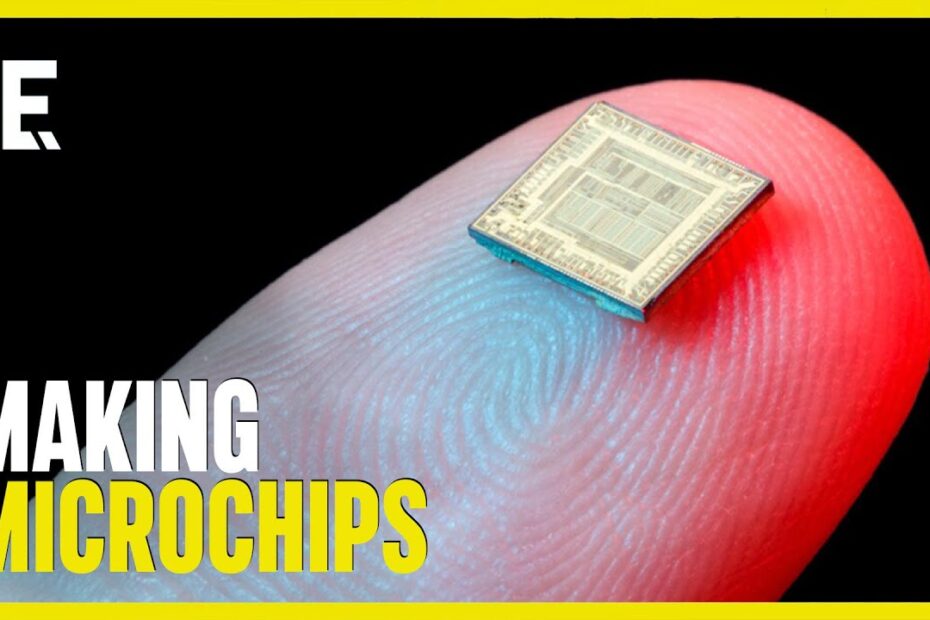Where Are Nvidia Chips Made? Unveiling the Manufacturing Process
Nvidia chips, renowned for their cutting-edge performance in graphics processing and AI applications, are manufactured through a complex global supply chain. While Nvidia designs its chips in-house, the actual fabrication process is outsourced to third-party foundries. These foundries specialize in advanced semiconductor manufacturing, ensuring the precision and quality required for Nvidia’s high-performance GPUs and processors.
Key Players in Nvidia’s Manufacturing Process
The primary foundries responsible for producing Nvidia chips include Taiwan Semiconductor Manufacturing Company (TSMC) and Samsung Electronics. TSMC, based in Taiwan, is the world’s largest and most advanced semiconductor foundry, producing many of Nvidia’s most sophisticated chips using cutting-edge process nodes like 5nm and 4nm. Samsung, headquartered in South Korea, also plays a significant role, particularly in manufacturing chips for Nvidia’s mid-range and entry-level products.
The Role of Foundries in Chip Production
- Design and Prototyping: Nvidia designs its chips and provides the blueprints to the foundries.
- Wafer Fabrication: Foundries use advanced lithography techniques to etch Nvidia’s designs onto silicon wafers.
- Testing and Packaging: After fabrication, the chips undergo rigorous testing and are packaged for distribution.
This collaboration between Nvidia and its manufacturing partners ensures that the chips meet the highest standards of performance, efficiency, and reliability. The geographic distribution of these foundries highlights the global nature of the semiconductor industry, with key production hubs located in Asia.
The Global Supply Chain: Exploring Where Nvidia Chips Are Produced
Nvidia, a leader in GPU and semiconductor technology, relies on a complex global supply chain to produce its cutting-edge chips. The company designs its chips in-house, but the manufacturing process involves collaboration with specialized foundries across the world. Taiwan Semiconductor Manufacturing Company (TSMC) is one of Nvidia’s primary partners, responsible for producing a significant portion of its advanced chips. TSMC’s state-of-the-art facilities, particularly those using 5nm and 7nm process nodes, are critical to meeting Nvidia’s high-performance demands.
Key Players in Nvidia’s Supply Chain
- TSMC: The world’s largest semiconductor foundry, TSMC handles the bulk of Nvidia’s chip production, including its latest GPUs.
- Samsung Foundry: Another major partner, Samsung contributes to manufacturing some of Nvidia’s chips, leveraging its expertise in advanced process technologies.
- GlobalFoundries: While less prominent than TSMC and Samsung, GlobalFoundries also plays a role in producing certain Nvidia components.
Geopolitical factors and supply chain disruptions have highlighted the importance of diversification in Nvidia’s production strategy. While Taiwan remains a hub for semiconductor manufacturing, Nvidia has explored partnerships in other regions to mitigate risks. For instance, discussions around expanding production in the United States and Europe have gained traction, driven by government incentives and the need for a more resilient supply chain.
Nvidia’s reliance on a global network of suppliers and manufacturers underscores the interconnected nature of the semiconductor industry. From raw materials to fabrication and assembly, each step in the process involves multiple stakeholders across different countries. This intricate web of collaboration ensures that Nvidia can deliver high-quality chips to meet the growing demands of industries like gaming, AI, and data centers.
